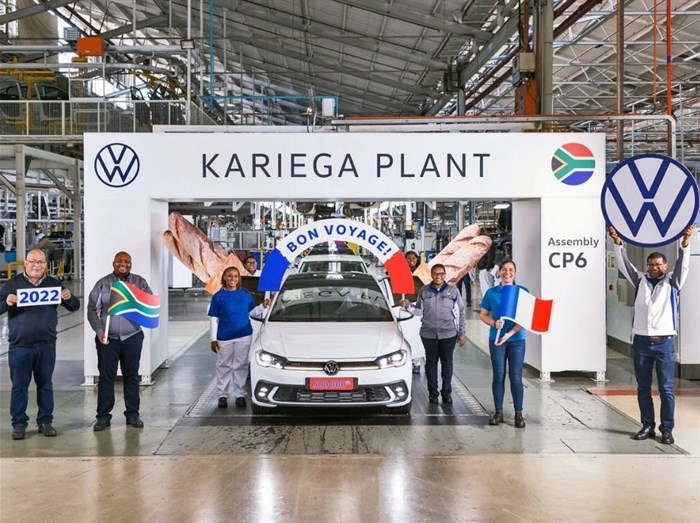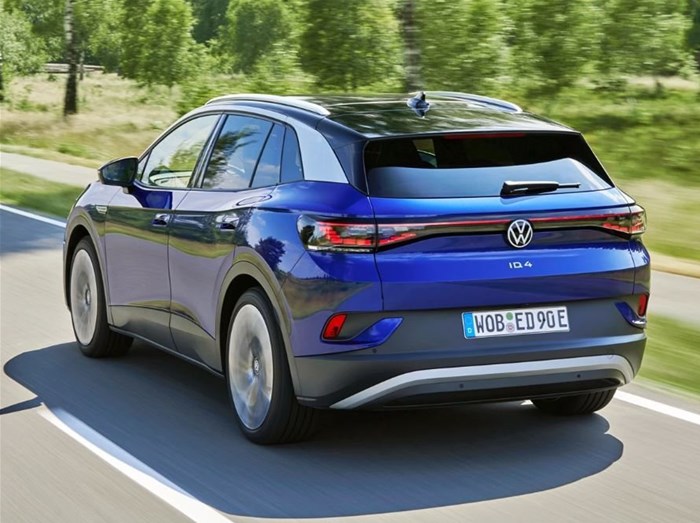
The head of Volkswagen Group South Africa has explained why it will likely be more than a decade before the German brand starts producing electric vehicles (EVs) at its Kariega plant in the Eastern Cape.
Martina Biene, chairperson and managing director of Volkswagen Group South Africa, made the comments during an exclusive podcast interview with Cars.co.za video journalist, Ciro De Siena, saying she sees locally produced EVs becoming a reality only around 2035.
VWSA currently manufactures the Polo hatchback and Polo Vivo at its local facility, while it plans to add a mystery 3rd model to the Kariega production line in the next few years. In addition, a half-tonne bakkie could be spun off the same platform, based on separate comments from Biene.
Of course, all of those models are or will be powered by internal combustion engines. Considering the global shift towards electric mobility – including in key export markets in Europe – what are the chances of the Wolfsburg-based firm adding an EV to its production line in the next few years? Well, Biene suggested such a move was quite some way off.

“The first step is getting EVs into the country on an FBU basis – a fully built unit basis – import them and then grow and also get South African customers to experience them,” she said, pointing out potential buyers still have concerns around range anxiety and indeed whether EVs can really work in South Africa considering the enduring load-shedding crisis.
“I see us producing electric vehicles probably by 2035, in our South African plant. Why is that? That’s also related to our strong local footprint,” said Biene, explaining that around 30 to 35% of vehicles – in the form of the Polo hatchback and Polo Vivo – currently produced at the Kariega facility are sold locally rather than exported.
“We don’t want to be only an export plant for EVs to Europe or to somewhere [else]. So, we would probably need, say, 50m000 units for one model per year to make it meaningful to localise,” she said.
“So, 50 000 units. Let’s take the 30% [local] share: we’d have to sell around 15 000 in South Africa – 15 000 EVs, one model,” Biene emphasised, adding VWSA tended to sell “20,000 to 25,000 Polos a year and 20,000 to 25,000 Vivos a year” (though those numbers were actually 15,697 and 20,866, respectively, in 2022).
“That’s what I would also want to target with EVs. Because, as I said, we are not only producing and then exporting, but we want the local footprint. So, it’ll take a bit to grow the South African market to then take these 15,000 units a year [in local sales], from that mathematical example. That’s why I think it’ll take a while to get there.”

In addition, Biene revealed spiralling logistics costs were making it increasingly difficult to export vehicles to Europe.
“Also, what is a bit of a roadblock currently is that the logistics costs have increased tremendously for export to Europe, with diesel for vessels becoming more and more expensive. That logistics cost is a nightmare from South Africa to Europe.
“For EVs, we currently would even have to ship batteries from Europe to South Africa and then ship the [completed] vehicles back. And that’d add too much to our CO2 footprint – and [to] the costs. So, I think it [will take] a while to grow EVs in South Africa and also in Africa,” Biene said.
She emphasised VW would “need a bit of time to build that demand in South Africa” before considering local production of battery-powered vehicles. So, when will we see imported electric VWs on the road in South Africa? Read our recent chat with Steffen Knapp, VWSA’s head of passenger cars, for more details on that topic.
This article was originally published on Cars.co.za...

Cars.co.za is a leading online automotive retail portal that lists more than 70 000 vehicles stocked by hundreds of dealers countrywide, as well as the top-ranked branded SA YouTube channel. In 2015, Cars.co.za repositioned itself as a consumer champion by optimising its editorial content for the purposes of engaging and empowering its users. The Cars.co.za Ownership Satisfaction Survey, in association with Lightstone Consumer, and the Cars.co.za Consumer Awards – powered by WesBank, underlines the company’s objective to be the most comprehensive resource to South African vehicle buyers.
Go to: http://www.cars.co.za